Drama, Theatre and Performing Arts
Become one of the next generation of makers, thinkers and influencers in the theatrical world.
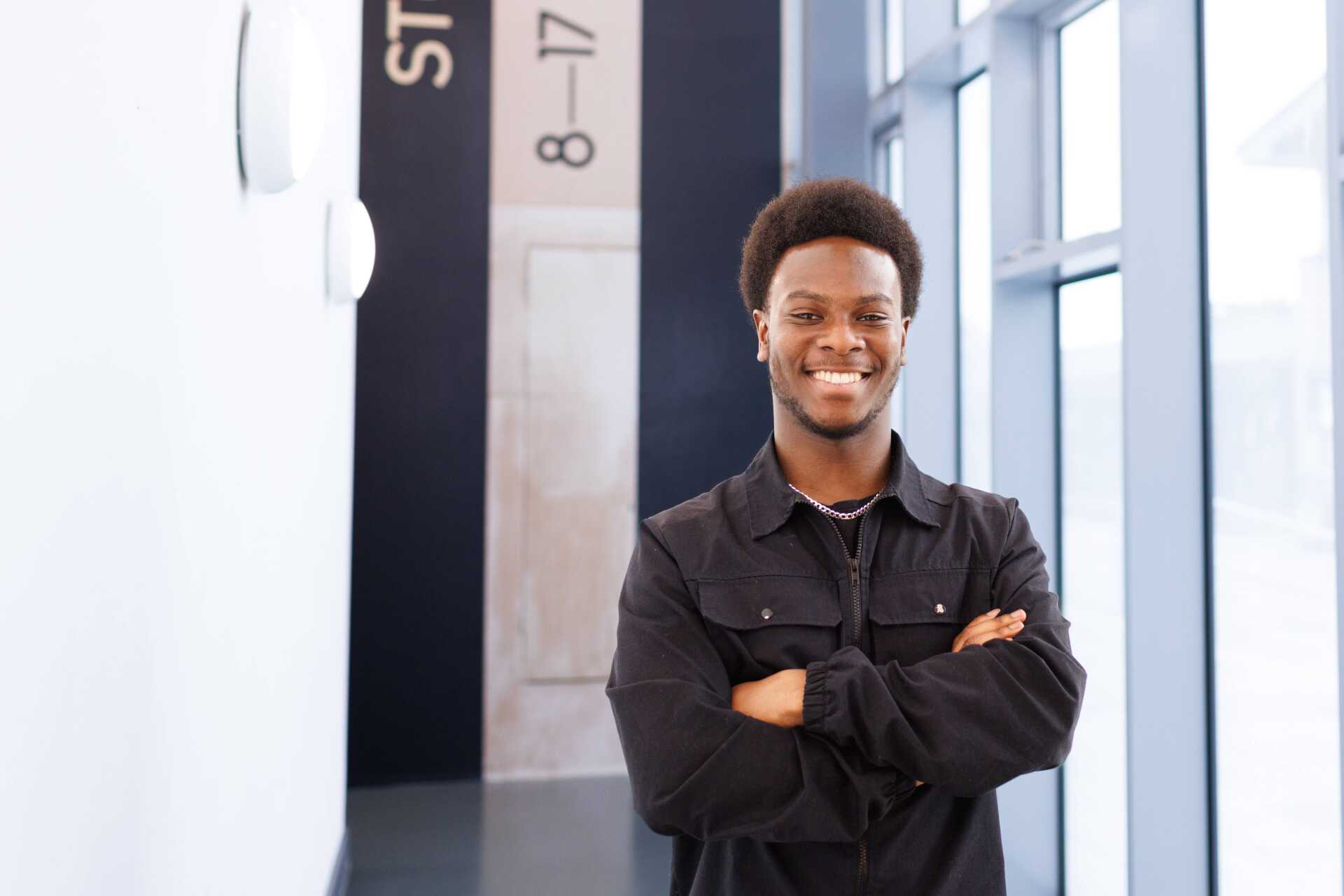
Become one of the next generation of makers, thinkers and influencers in the theatrical world.
By studying Drama, Theatre and Performing Arts at Kent, you'll benefit from exceptional teaching and industry links that will help you to launch your career. Covering a wide range of subjects and developing your practical skills as well as critical thinking, this dynamic course allows you to explore your own style and creativity and follow your passions and ambitions.
We'll challenge you with practical and theoretical study, empowering you to shape your degree around your areas of interest. From acting to directing, musical theatre dance to writing for performance, theatre design to stand up comedy and many more, you'll explore your subjects alongside fellow students, creating new work and discovering new ways of seeing established works. Our team of academics, professional practitioners and technical specialists will support you every step of the way as you create, analyse and critique, developing your understanding of drama and theatre and becoming a more confident performer and maker.
You'll study within an exciting and diverse environment, benefitting from our strong connections with industry and local arts venues, opportunities for workplace learning and our flagship Graduate Theatre Company scheme, all of which support you in kick-starting your career within the creative industries.
You can take this degree with a year of working or studying abroad.
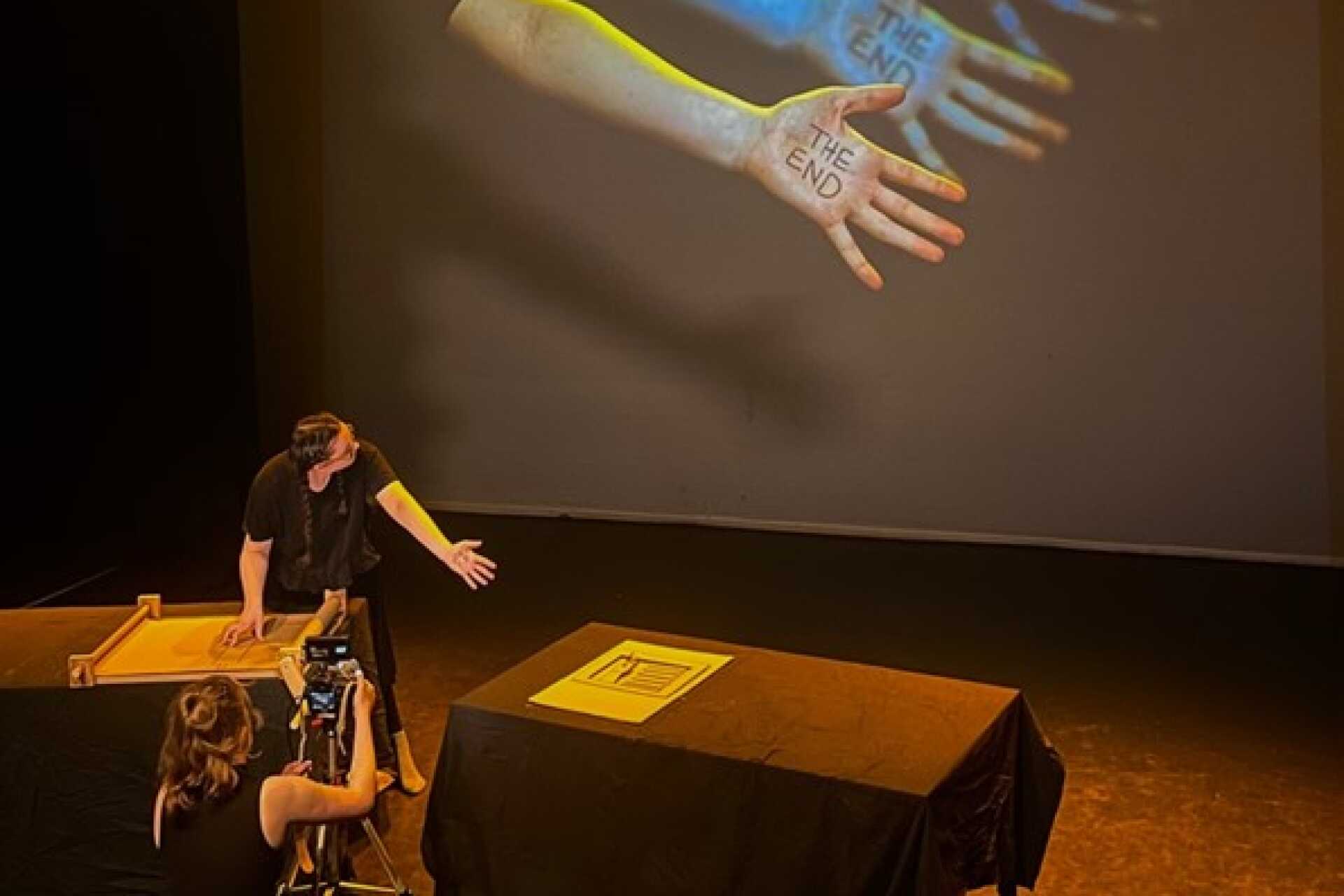
Choose between different kinds of theatre and performance. Choose onstage or backstage. Choose to be yourself through an inclusive curriculum.
Drama and Cinematics at Kent scored 93% overall in The Complete University Guide 2025.
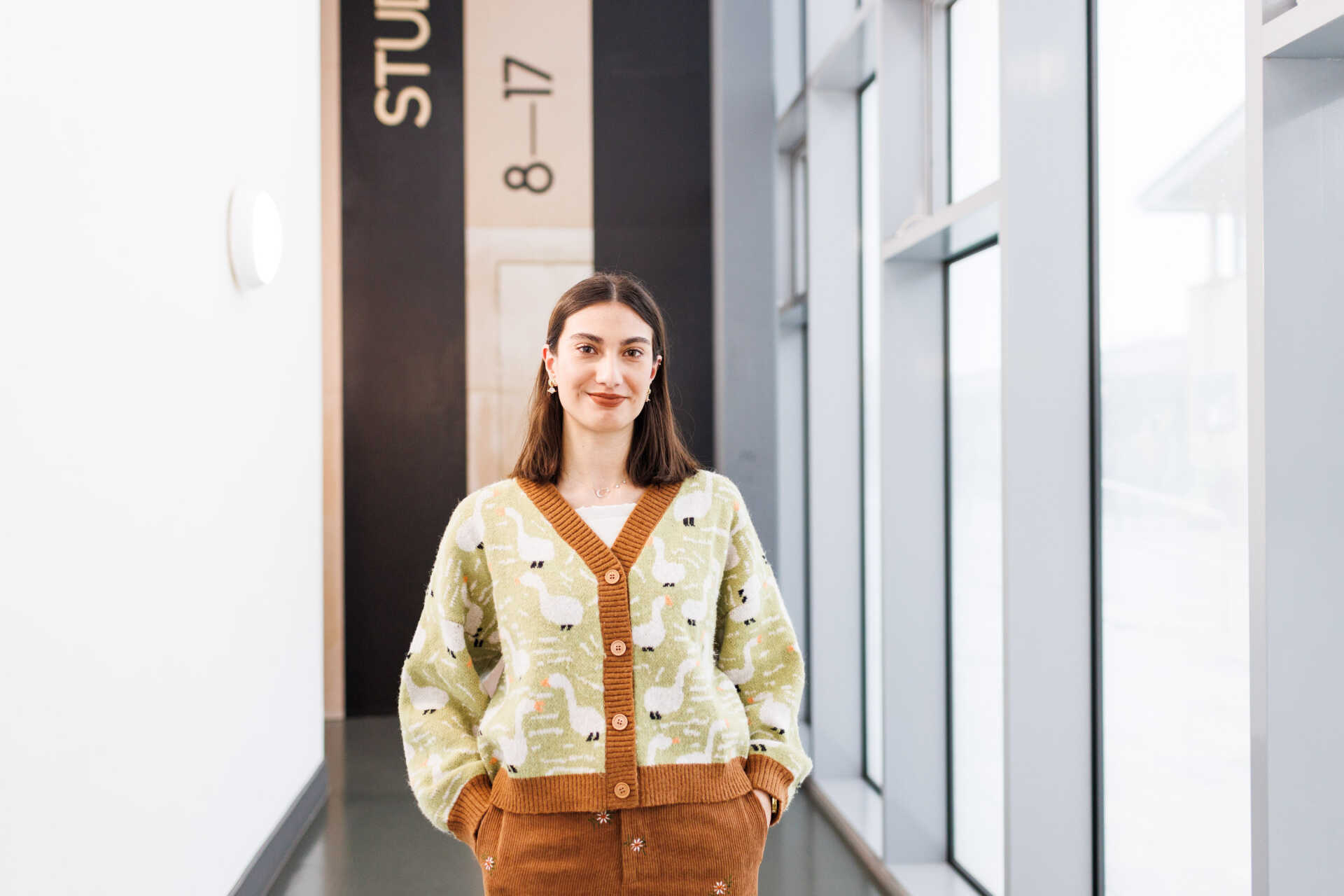
Three years after graduating, Amelia Mundy has already managed to land her ‘dream job’ in TV production. So how did she manage it?
Links with industry and local arts venues and our flagship Graduate Theatre Company scheme help to kick-start your career in the creative industries.
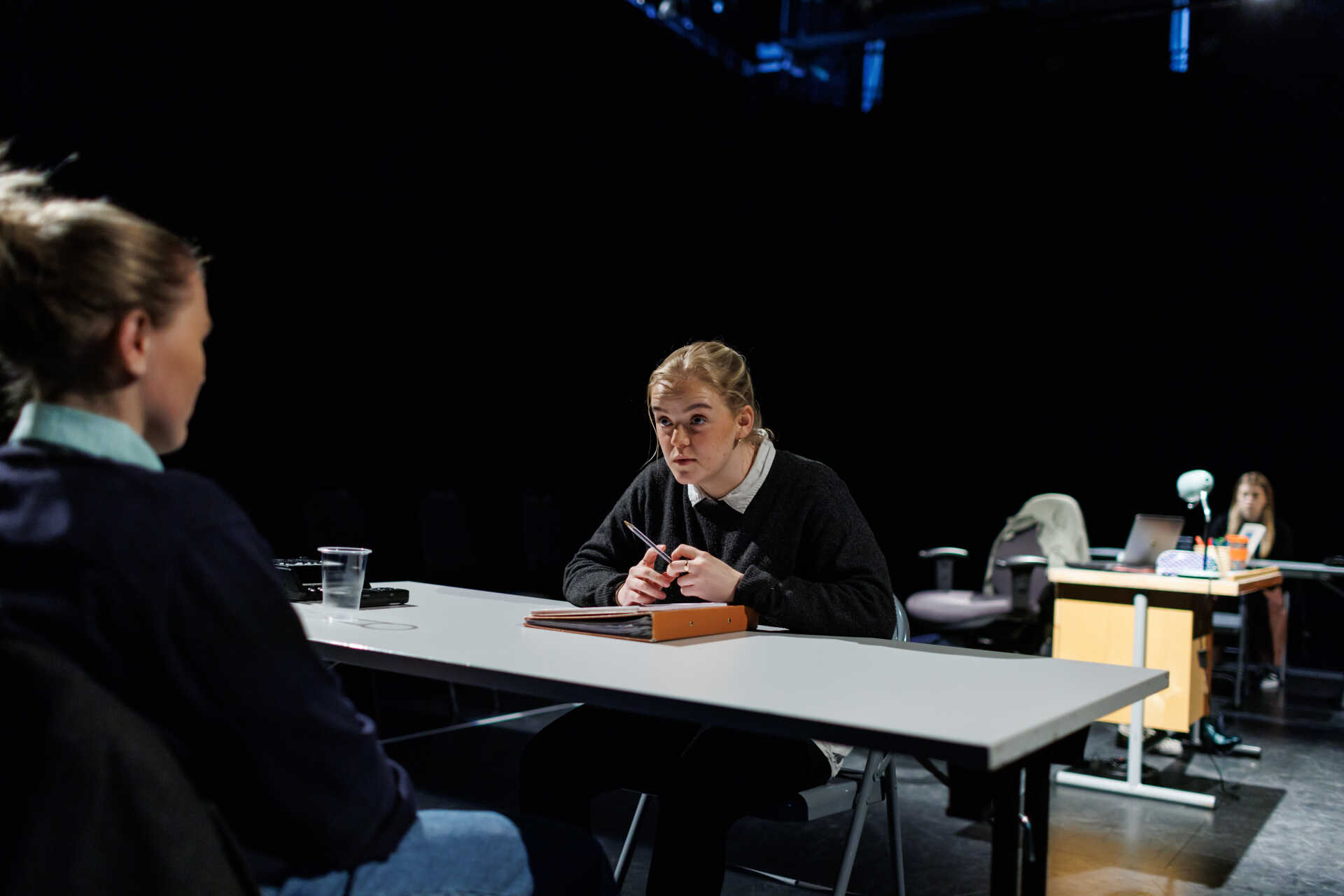
From rehearsal studios to theatres and a construction workshop, our bespoke drama facilities will improve your practical skills and technical knowledge.
Our typical offer levels are listed below and include indicative contextual offers. If you hold alternative qualifications just get in touch and we'll be glad to discuss these with you.
BBB
The University will consider applicants holding BTEC National Diploma and Extended National Diploma Qualifications (QCF; NQF; OCR) on a case-by-case basis. Please contact us for further advice on your individual circumstances. A typical offer would be to achieve DDM in a suitable subject.
120 tariff points - typically H5 H6 H6 or equivalent.
Pass the University of Kent International Foundation Programme.
The University will consider applicants holding T level qualifications in subjects closely aligned to the course.
Obtain Access to Higher Education Diploma with 45 credits at Level 3 with 24 credits at Distinction and 21 credits at Merit.
Applicants for the BA in Drama, Theatre and Performing Arts will be invited to a practical workshop and informal group interview, either in person or online. This is designed to allow us to get to know you better, and for you to ensure that all your questions about the course are answered. Those who attend the workshop and receive a conditional offer will receive a one-grade reduction from the published offer level, meaning that your offer would be BBC rather than BBB, or equivalent.
The following modules are what students typically study, but this may change year to year in response to new developments and innovations.
Get ready to challenge yourself and be challenged, as you get to know the raw ingredients of contemporary performance.
In this first of three Making Performance modules, you’ll experiment with space, text, physical acting and ensemble devising. You’ll encounter important practitioners and groundbreaking performances, while also gaining hands-on experience in the foundations of lighting, sound and stagecraft.
The skills you’ll develop through your first performances this term, along with introductions to key concepts and practitioners, will provide a foundation for the rest of your studies and your career in the arts.
Are you passionate about plays? Do you want to learn more about their history, and become confident understanding a variety of play texts?
In this module, you’ll explore a range of performance texts, from Ancient Greece to the 21st century. Weekly lectures will ground your understanding contextually, and practical workshops will enable you to bring the scripts to life with embodied understanding.
This contextual understanding will culminate in two assessments: a historical essay and an in-class presentation. This module (together with Making Performance 1 and 3) will give you a solid foundation for the rest of your degree and for a career in performance.
How does performance change the world, and how we see things? How do you make work that understands and engages with its audience? What are your strengths as a performer, writer and theatre maker? What are your responsibilities? By creating and analysing popular, grassroots performances in comedy, live music, storytelling and performance poetry, you’ll discover your unique strengths as a performer.
You’ll learn to become comfortable talking directly to an audience, in your own words and grounded in your own identity. By learning to listen to audiences and respond to them in the moment of performance, and creating engaging and meaningful interactions, you’ll gain skills that are essential for a range of careers in the creative industries.
You’ll develop your ability to critically assess how popular performances respond to their social contexts, and whether they have the power to impact their societies. You’ll reflect on what is important to you as a theatre maker and construct your own answers to crucial questions about what you do (or do not) want to bring to the stage. This practice helps you find and develop you distinct creative voice and vision as a performer.
How do you prepare your body, voice and imagination for performance? This module will help you develop your performance skills by exploring different approaches to working with breath, movement, imagination, and voice, as well as starting to look at playful ways of transforming into character, for example through mask work.
You’ll develop these skills during practical workshops, learn about the context and background of exercises through accompanying readings and discussion, and reflect on your own development. Importantly, understanding the theory and practice of exercises will enable you to take responsibility for designing appropriate warm-ups for rehearsal and performance, which will serve you well for the rest of your degree and beyond.
By developing your abilities in both verbal and non-verbal communication, the module will also give you essential transferable skills that are highly valued in a range of industries, as well as the specific skills you need for a career in the creative industries.
How do you create exciting visual theatre? What skills do you need to bring objects and puppets to life? How do you use scenography to tell stories? This module offers a creative exploration of puppetry and object theatre. You’ll learn about scenic elements and staging, different types of puppets and objects, and visible or ‘invisible’ puppeteering.
Your lectures and seminars will put puppet and object performances into historical context, while you’ll learn the art of performance in practical workshops. You’ll discover the uses and dynamics of different materials, and develop your confidence as a maker, performer, puppeteer, manipulator and/or technician.
Beyond puppeteering, you’ll come away from this module with the ability to design and make props using various techniques, giving you valuable transferrable skills in many different industry contexts and a better understanding of all elements that go into making theatre and performance.
Pursuing a career in the arts not only requires creativity and talent but also an understanding of how the UK arts sector operates. In this module, you’ll learn about all aspects of the creative industries and the various career paths that exist for arts graduates.
Through tasks and exercises, you’ll develop both practical and critical skills, ranging from writing CVs and funding applications to managing your professional portfolio and using social media and networking to boost your career prospects and promote your work.
The module will also help you to consider and reflect on which types of creative careers align with your ambitions, and to develop a plan for pursuing your chosen path. As well as giving you the tools to bring your plan to life and achieve you goals.
What do Matilda, The Curious Case of the Dog in the Night-Time and Noughts & Crosses have in common? You guessed it: they are all book sources of highly successful stage adaptations. Theatre makers continue to transform canonical stories— such as Romeo and Juliet, the Mahabharata and 1001 Nights —into new plays, musicals, puppet shows and pantomime, while audiences flock to see them. Why are adaptations so popular nowadays? And how exactly do artists create them?
By taking this module, you’ll discover the foundational building blocks of storytelling, and learn how these can be rearranged into new shapes. In lectures and seminars, you’ll examine how characters, story structure, language, culture, medium, genre and ideology can evolve from one version of a story to another. In our workshops, you’ll experiment with adaptation shifts in practice. You’ll also pay particular attention to the representation of race, gender and disability.
You’ll devise an adaptation based on a well-known story of your choice. You’ll also review adaptation techniques by discussing a case study. This module will equip you with the cultural competencies, critical awareness and creative toolbox that will make you highly employable in the creative industries.
There isn’t just one way to approaches theatre and performance design. You’ll explore different styles and methods used to design theatre, while gaining hands-on experience of how to bring a performance to life using the elements of lighting, sound, and scenography.
Through lectures you will learn key design principles and how to interpret a performance text from a design point of view, while practical workshops will teach you the fundamentals of handling equipment effectively and safely, and how to realise design ideas within budget. By the end of the module, you will have developed your own design in collaboration with others and produce a design portfolio to demonstrate your work.
You will come away from this module with key fundamental skills in theatre design and tech, that will empower you to think more boldly about design and competently consider all key aspects of a production. This knowledge will serve you well whether you go on to create solo performance, tour your work as a company, or work in any industry that involves live events.
What makes a good actor? Instinct? Imagination? Skills?
Explore the theory and practice of Naturalism through key plays of the 20th and 21st centuries, comparing different leading practitioners and culminating in performance.
You’ll study acting techniques developed by Stanislavski and his successors and learn the basic terms and concepts of mainstream rehearsal-room practice, including Uniting, Actions and Activities, Objectives, Obstacles, Stakes, and Given Circumstances.
You’ll analyse play texts from the practical point of view of an actor, working on plays from 1930 to the present, researching their original context (cultural, political and dramaturgical) and consider how they might be played today.
You’ll perform play extracts in class for feedback, produce a portfolio (a short written analysis and a reflective account of your process) and take part in a final performance. Even if you don’t want to become an actor, you will emerge with transferrable skills of the confidence to speak directly to an audience, experience in working collaboratively towards a deadline and problem-solving and trouble-shooting skills.
Musical theatre dance is a melting pot of African, Indian, Caribbean, and Afro-Latin movement, influenced by ballet, modern, and social dance. You’ll learn about this history and the key developers of musical theatre and jazz by dancing, as well as by analysing musicals across the 20th century. You’ll finish the module with improved dance technique and the ability to learn and perform choreography from different periods, along with a greater understanding of musical theatre and jazz dance’s multicultural history.
Want to develop your skills in popular performance and become a more versatile performer? Want to find out about the origins of much of today’s live entertainment industry, by learning about the politically radical DIY performance scene of Alternative Cabaret?
In this module, weekly workshops will introduce you to a range of performance skills including music making, performance poetry, stand-up comedy, sketch comedy and speciality acts, all of which involve learning how to address an audience directly and manipulate their responses.
You will also learn about 1980s Alternative Cabaret, using primary historical sources in the British Stand-Up Comedy Archive for a research essay. You will regularly devise and perform your own acts, inspired by historical examples from Alternative Cabaret, and the module culminates in a cabaret performed to a live audience in a public venue.
You will emerge with an enhanced confidence in your ability to engage and hold an audience, whether in a theatre, comedy club, classroom or the wider workplace.
“A good costume, like a good symbol, should conceal as much as it reveals”. We will explore this quote from Aby Warburg through an interdisciplinary approach to the study of costume and fashion – the art that can be worn – to explore its roles in drama, film and the visual arts.
The social values encoded by clothes, their relation to class or sexual identity, will be discussed, along with how these assumptions inform the use of costume in adaptations or stagings of texts, or how they colour our view of a character, or of a director’s interpretation (for example, using deliberate anachronism).
The role of clothing and costume in the history of art will be analysed from artists’ representation of clothes, contemporary or otherwise, to their involvement in fashion design, giving you both a broad overview and deeper understanding of fashion within the arts.
How can cinemas, galleries, theatres and museums become more accessible to visitors with impairments? How is disability understood and represented in contemporary culture?
By visiting and engaging with a range of arts institutions you will identify both barriers to inclusion and how they can be removed. You will critically assess the way in which institutions respond to their context, including relevant anti-discrimination law and the history of disability. You will conduct an access audit and review of a venue, gaining valuable training for anyone looking to work as an access officer in an arts, education or heritage context, or who wants to run events that are as accessible as possible.
Beyond this, you’ll be able to apply knowledge of accessibility and the history of disability rights and legislation to a range of work in the arts and heritage, education, community or charity sectors.
How do you go about writing a play or text for performance? What writers and playwrights inspire you? And how can you learn from their approaches to help you find your own writing style?
You will consider and answer these questions, as you develop your skills in writing and your own creative approach. You will have the opportunity to look at a range of performance texts and learn how to closely analyse these, to help you understand the fundamentals of writing for performance.
You will develop your skills by writing your own material and experience the results and effects of your writing by witnessing how it comes to life when it is performed by others. Through ongoing practise, discussion and constructive criticism from peers and lecturers, you will also develop an understanding of how important revision, editing and feedback are to the evolution of a piece of writing for performance.
By the end of the module you will have developed your ability to recognise and discuss what makes a good piece of writing, produce compelling performance texts of your own, and apply your skills as a confident and creative communicator.
Your placement year takes place between your second and final year. It is a great opportunity to gain workplace experience, increase your professional contacts and acquire new skills, and is a valuable addition to your CV.
You can take your placement year in the UK or abroad with a wide range of employers in areas including the arts, education and cultural heritage. While you are responsible for finding your placement, we offer support and guidance through the application process.
Tuition fees for the placement year are greatly reduced and employers may offer expenses or a salary.
The placement year is assessed on a pass/fail basis and does not count towards your final degree classification.
What could you do in a year?My year in industry couldn’t have gone better. I secured a role at IBM, working in their sports and entertainment department – it was perfect for meTom Tillin Find out more
Going abroad as part of your degree is an amazing experience and a chance to develop personally, academically and professionally. You experience a different culture, gain a new academic perspective, establish international contacts and enhance your employability.
All students within the Division of Arts and Humanities can apply to spend a Term or Year Abroad as part of their degree at one of our partner universities in North America, Asia or Europe. You are expected to adhere to any progression requirements in Stage 1 and Stage 2 to proceed to the Term or Year Abroad.
The Term or Year abroad is assessed on a pass/fail basis and will not count towards your final degree classification. Places and destination are subject to availability, language and degree programme. To find out more, please see Go Abroad.
Where could you go in a year?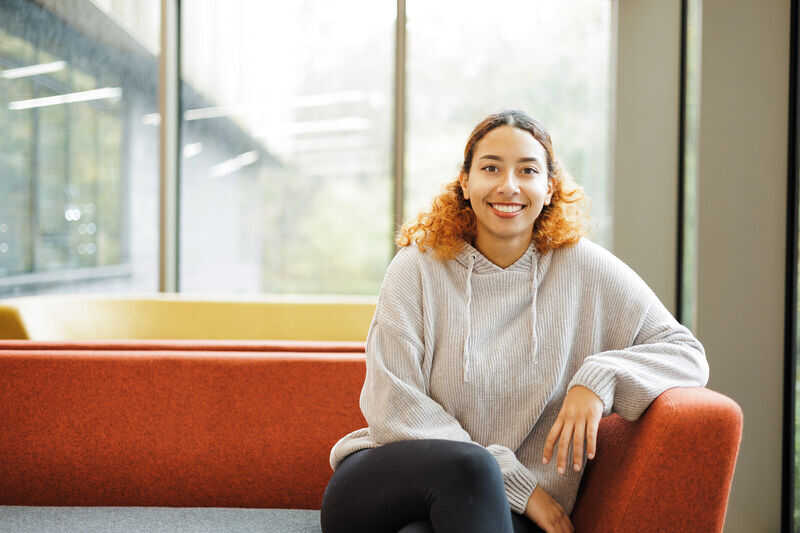
My ‘You only live once’ decision to study in Japan is one of the best I’ve ever made. I had a fantastic year.Cheyenne Nolan Find out more
You will take one of the modules 'creative project' or 'dissertation'. You will then choose 4 of the optional modules.
Do you feel inspired to create an original performance, in a form and style of your choice? Are you ready to apply the skills you have built across your degree to create your final show for a public festival?
This module will give you the skills to initiate and carry out an independent project, working either as a soloist or in a small student company where you choose your own collaborators. You’ll take responsibility for devising an initial idea and bringing it to life by working with your classmates, lecturers and technical team. You’ll produce a high-quality piece of performance within real-world budget and resource limitations while applying safe and ethical working methods. You’ll gain project design and management skills that are essential for careers in the creative industries.
By applying the skills and knowledge that you have gained across your degree in a challenging, fully autonomous project, you’ll be taking the final step before entering the industry as a professional independent theatre maker.
Have you developed a passion for a particular topic in drama, film or media? Do you love writing, researching, and exploring a subject deeply? This is your chance to develop your skills and create a piece of work about the topics you are passionate about.
You’ll develop an in-depth independent investigation into a specific issue, guided by research questions, and establishing a dialogue with existing scholarship, practices and debates. You’ll start by conceptualising your project and work with an assigned supervisor. You’ll present your work in progress to get feedback from your peers in spring, and your final piece will be due in summer.
By building on what you’ve learnt during throughout your degree, you’ll create a new piece of research that will allow you to pursue your interests and ideas, honing your independent critical thinking skills and further expanding your employability.
Do you love movement? Are you fascinated by performance that sits in the crossover between theatre and dance? Are you keen to sharpen your devising skills and create captivating ensemble performance?
Explore the world of physical theatre and key practitioners who influenced its development over the last century. Through intensive workshops, practice-lectures, a reflective learning portfolio and a public performance, you’ll develop your understanding of movement as a communicator of meaning. You’ll explore how material is organised to make meaning, how texts are adapted through physical work, how we can move from experimentation and improvisation to clear form and structure. We’ll give you essential strategies for creative collaboration, including directing without dominating by giving feedback in a way that generates new possibilities, developing individual creative agency while working as part of a group and thinking about wellbeing in the creative process.
You’ll be encouraged to develop your own creative language and style so you don’t need to have any prior experience in movement techniques. You’ll become a more confident physical performer and maker, with key transferable skills in presenting, collaboration and creative wellbeing.
Have you ever wanted to direct a play? When you take this module you’ll explore the art of directing in a supportive pre-professional environment.
What does a director do? Is the director’s job to ascertain what the playwright meant and to clearly convey that to the audience? Or is the director a co-author of a performance whose intentions also inform the meaning of the work? These are fundamental questions that you’ll consider as you develop your directing skills, as you figure out what kind of director you want to be.
You’ll study a range of political and philosophical plays, which will be contextualised by a series of lectures, and through a series of workshops you’ll be introduced to techniques to translate the ideas from page to stage. In doing so, you’ll develop confidence in dealing with challenging concepts and using that understanding to inform the practical work. Even if you don’t want to become a director, these skills are transferable to several careers including teaching, PR, and marketing.
How can I make an audience laugh? How do comedians write, hone and deliver their material? What makes a joke funny? Does it matter what comedians say, and what we laugh at?
You’ll write and perform your own stand-up sets, before selecting one to perform in a public gig at the end of term. Whether you’re a complete beginner performing stand-up for the first time, or a more experienced comedian developing your act and improving understanding of your craft, you’ll learn to create artistically ambitious stand-up comedy that understands and responds to its social context. By acting as a director for your classmates and learning to analyse professional comedians’ work, you’ll gain the ability to reflect critically upon your own and others’ performances.
You’ll gain skills needed for a range of careers in the comedy industry including performing, directing, organising and managing stand-up, as well as skills that are vital for many careers. You’ll emerge as a highly capable public speaker who can write and deliver engaging material, using a sophisticated range of verbal tools to deliver your message with clarity.
How does art impact us the way that it does? And how do interdisciplinary researchers use the impact of art to improve people’s lives?
You will explore these questions through investigating theoretical ideas and research on the ways art is created, perceived, and applied. By studying empirical research on visual arts (painting, architecture, popular art), performing arts (dance and theatre), music, and film, you will gain knowledge about aesthetic perception, emotion and meaning in art, creativity, social and cultural influences on art, and the practices and ramifications of arts-sciences research.
By exploring a subfield of the arts and sciences of your choice, you’ll develop interdisciplinary literacy that has a wide range of applications beyond the module while also being able to follow your passions and carve out a niche. The primary focus will be on Western art forms, though other world art traditions and aesthetics will also be discussed.
Keen to gain practical experience in a professional industry setting? Thinking about how to start building professional networks beyond university? Interested in using self-reflection in practical ways towards building your future career? Then this module is the right choice for you.
As your first step towards your future career, you’ll engage in a placement/internship that will be relevant to your subject of study or ambitions. In addition to your placement, you will learn about employability in the creative arts industries and enhance your commercial awareness of what is needed to launch a career in this area.
You will be supported in learning how to approach prospective employers, tailor CVs, evaluate job descriptions, and promote yourself in a professional context, preparing you for life after university. You will also explore the value of your work placement experience through reflection and critical analysis.
Love Shakespeare? Frightened of Shakespeare? Bored of Shakespeare? All of the above?
This Acting Shakespeare module explores the performance clues in Shakespeare’s language to enable you to perform a role where YOU know what you’re saying – and so does your audience.
You will learn WHY Shakespeare writes in the way that he does: Why does he use verse? How can you help a listener follow these complex speeches? How do you create truthful relationships onstage with these words? What can happen when you talk directly to an audience member – and they answer you?
You’ll begin with an introduction to the working conditions of the Early Modern acting company, which shaped the way the plays were constructed. Lectures will provide context for practical work on voice production, language analysis and stagecraft. In the second half of the term you will apply these skills in developing your own Shakespeare performance.
Additionally, you will produce a written portfolio reflecting your ability to deploy the techniques you’ve learned. The module will benefit you whether you pursue a career in Acting, teaching, Public Relations, advertising, academia or the wider business sphere.
Does the idea of working with different community groups inspire you? Do you want to extend your skills in workshop facilitation? Can you imagine running your own theatre company with an outreach remit?
By researching and considering participatory theatre in its various forms, and the historical and social context in which it developed, you will explore several case studies and critically analyse the different creative approaches used by practitioners in their specific work. Inspired by what you discover, you will practically explore different workshop and facilitation techniques and engage with current debates surrounding the efficacy of this type of theatre.
You will apply this knowledge to your own developing practice. Working as a member of a pre-professional company you will, with others in your group, negotiate the planning, facilitation and management of a community project working with a group of participants in a participatory theatre context.
You will emerge from this module with a highly desirable set of transferable skills, including the ability to be flexible and think on your feet in complex circumstances, to prepare inclusive and accessible spaces and activities, and to communicate confidently and sensitively with a range of audiences.
Teaching is through workshops, seminars, lectures and practical projects. Most Drama, Theatre and Performing Arts modules are continuously assessed on the basis of coursework, projects and presentations, performances, essays and dissertations.
For a student studying full time, each academic year of the programme will comprise 1200 learning hours which include both direct contact hours and private study hours. The precise breakdown of hours will be subject dependent and will vary according to modules.
Methods of assessment will vary according to subject specialism and individual modules.
Please refer to the individual module details under Course Structure.
For course aims and learning outcomes please see the course specification.
Really positive feedback gave me a sense of the play’s potential.
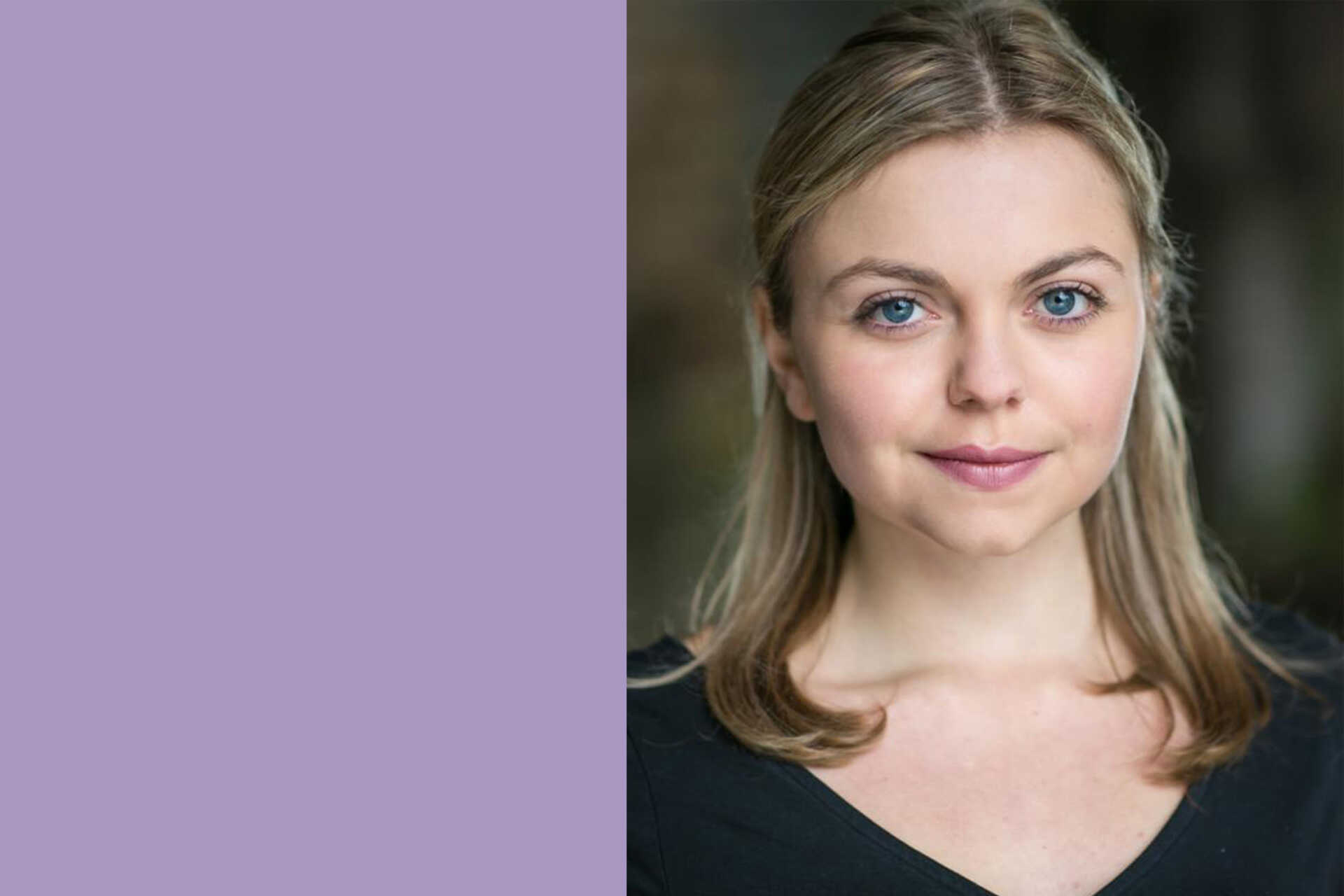
The School of Arts works hard to maintain strong relationships with professionals and venues, helping to launch your career in the creative and cultural industries. You’ll be taught by leading actors, comedians and makers with first-hand experience of what it takes to carve out a successful career in the arts. Their continued involvement in the industry will help you as you start to build your own network.
Our graduates have developed careers as: journalists, authors, literary managers, directors, performers, scriptwriters for television, stand-up comedians, casting agents, event managers, arts administrators, community theatre officers for local councils, and drama teachers.
Some recent graduate success stories include:
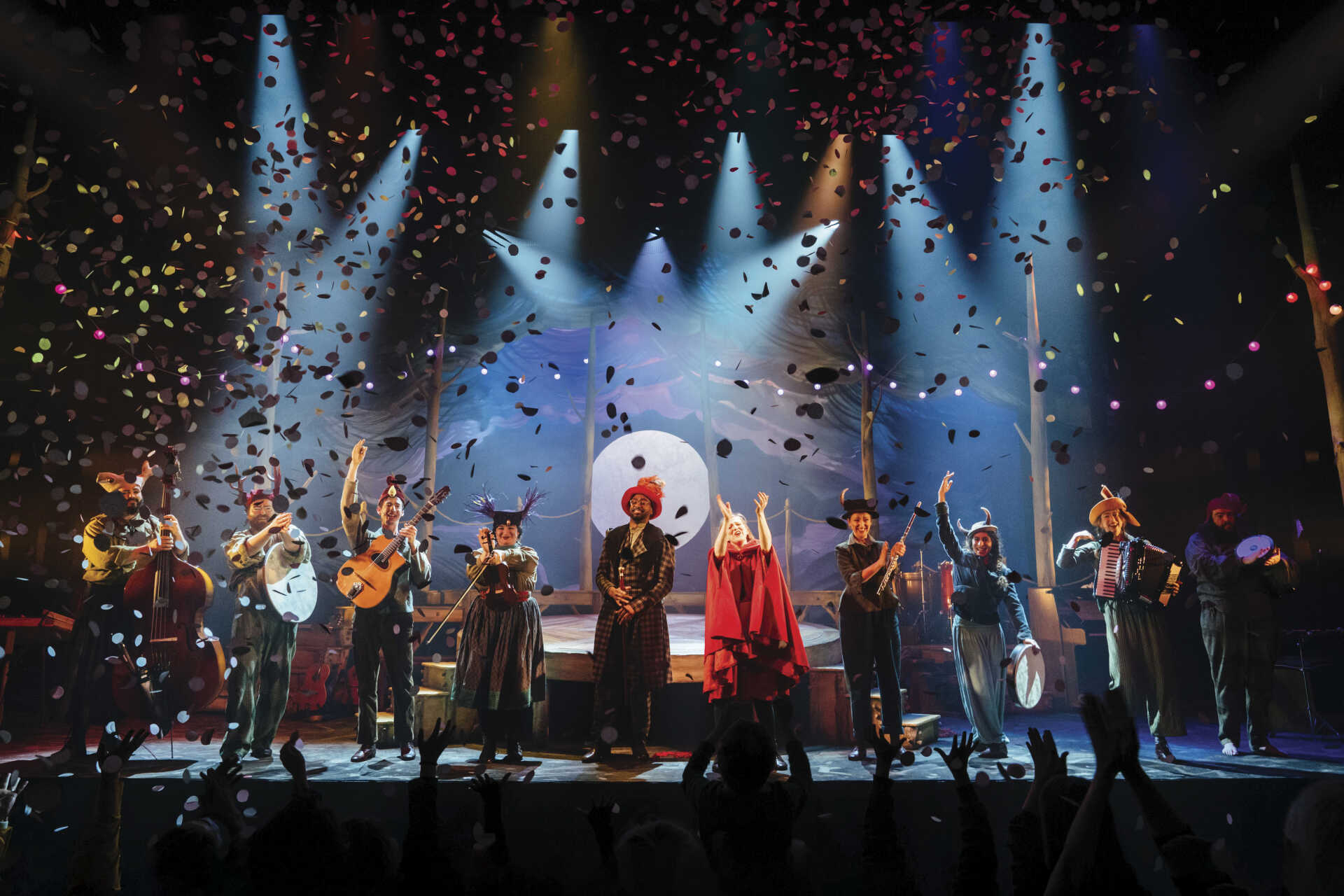
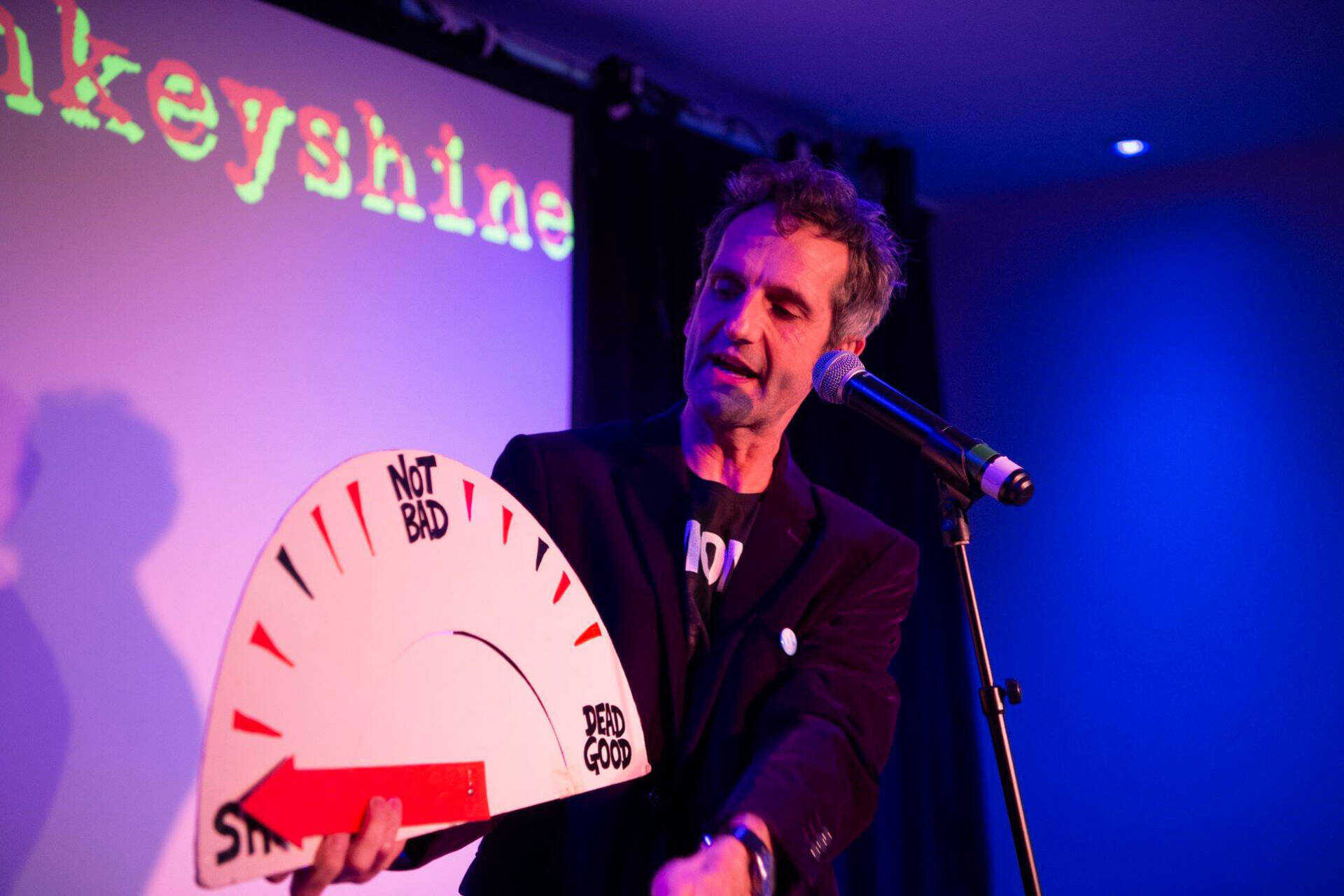
*The Government announced on 4 November 2024 that tuition fees in England for Home students will increase to £9,535 from £9,250 for the academic year 2025/26. This increase requires Parliamentary approval, which is expected to be given in early/mid 2025.
Tuition fees may be increased in the second and subsequent years of your course. Detailed information on possible future increases in tuition fees is contained in the Tuition Fees Increase Policy.
The University will assess your fee status as part of the application process. If you are uncertain about your fee status you may wish to seek advice from UKCISA before applying.
For details of when and how to pay fees and charges, please see our Student Finance Guide.
Fees for undergraduate students are £1,900.
Fees for undergraduate students are £1,430.
Students studying abroad for less than one academic year will pay full fees according to their fee status.
You will require regular access to a desktop computer/laptop with an internet connection to use the University of Kent’s online resources and systems. Please see information about the minimum computer requirements for study.
Seeing live theatre and performance is a key part of this course, and you may want to budget around £200- £300 for theatre tickets over your period of study. However, theatre visits are only compulsory in a few selected modules, with discounts arranged by the School (around £50 across stages 1-3).
If you choose a placement module or add a Year Abroad/in Industry to your degree, travel costs to the location of the placement are your responsibility, though some University support may be available.
Find out more about accommodation and living costs, plus general additional costs that you may pay when studying at Kent.
Kent offers generous financial support schemes to assist eligible undergraduate students during their studies. See our funding page for more details.
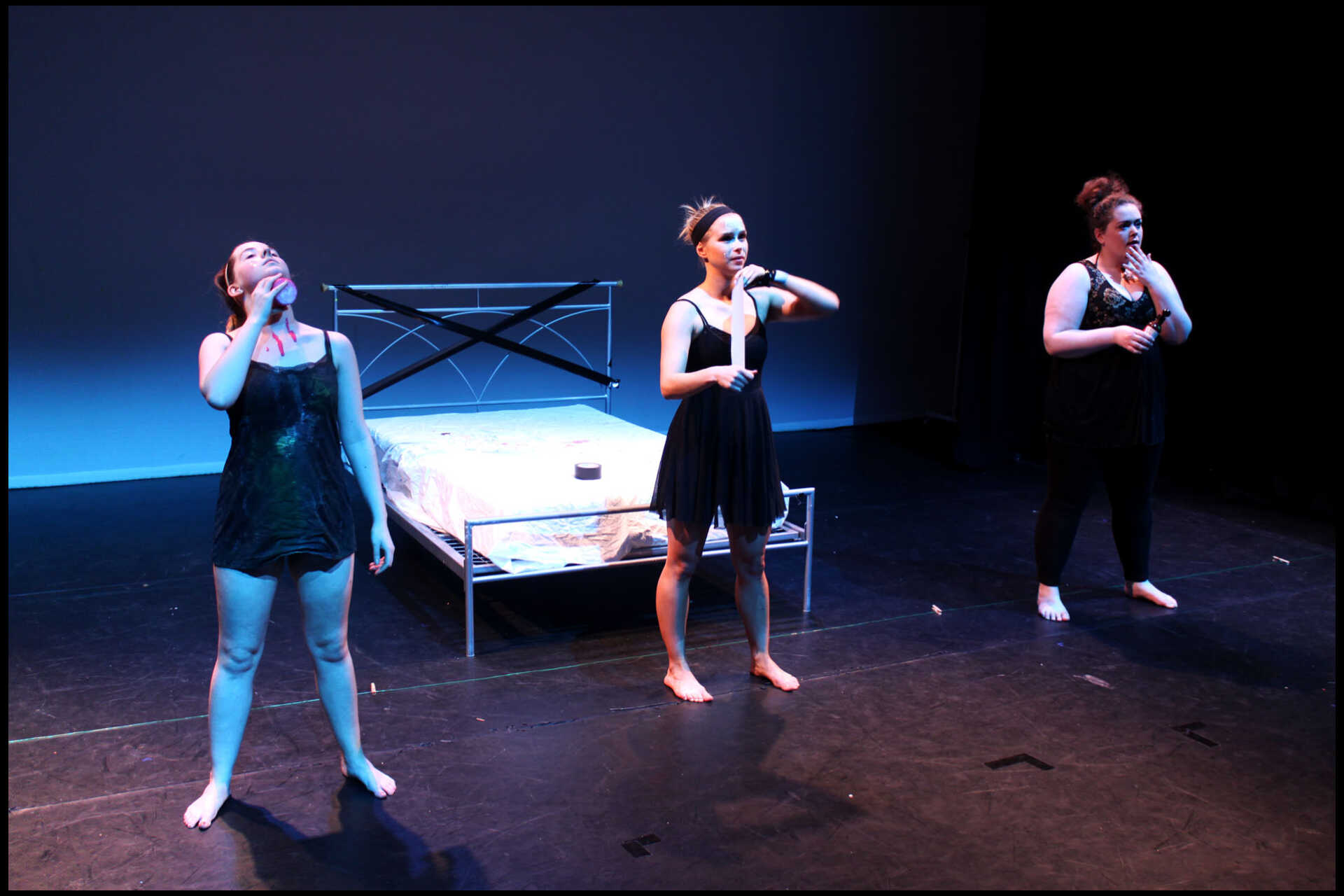
We have a range of subject-specific awards and scholarships for academic, sporting and musical achievement.
We welcome applications from students all around the world with a wide range of international qualifications.
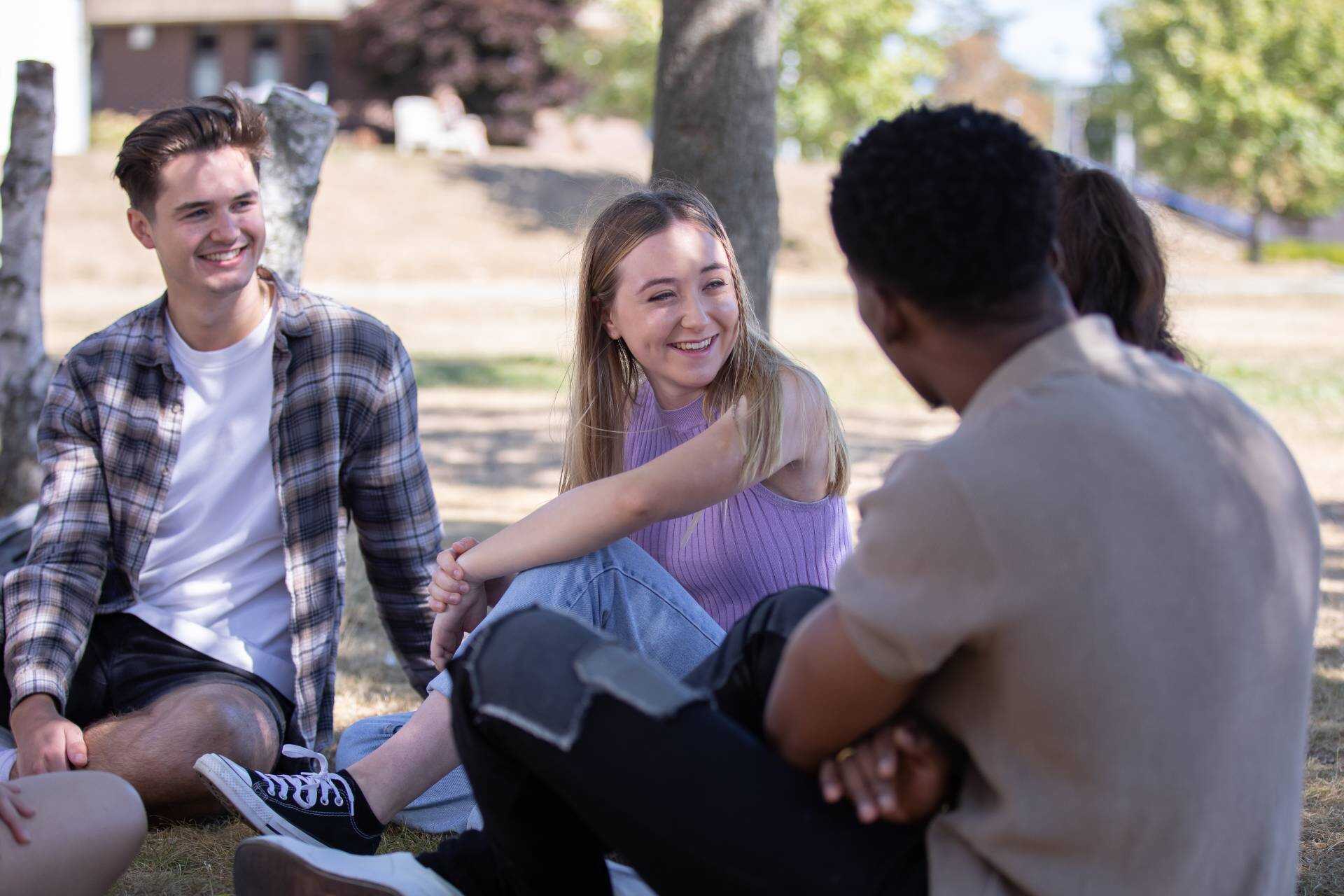
Student Life

Powered by progress
Kent has climbed 12 places to reach the top 40 in The Times Good University Guide 2025.
Kent Sport
Kent has risen 11 places in THE’s REF 2021 ranking, confirming us as a leading research university.

An unmissable part of your student experience.